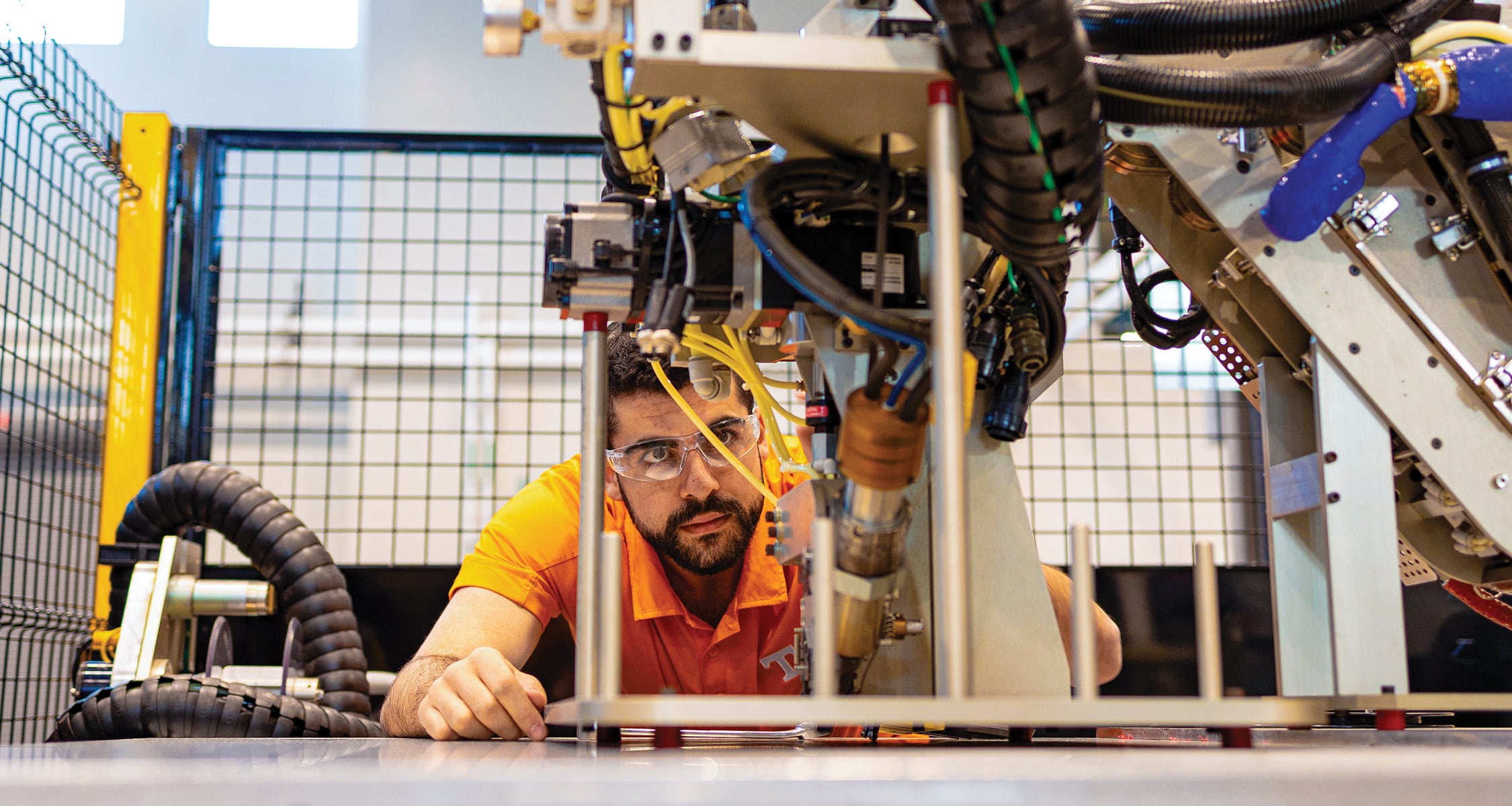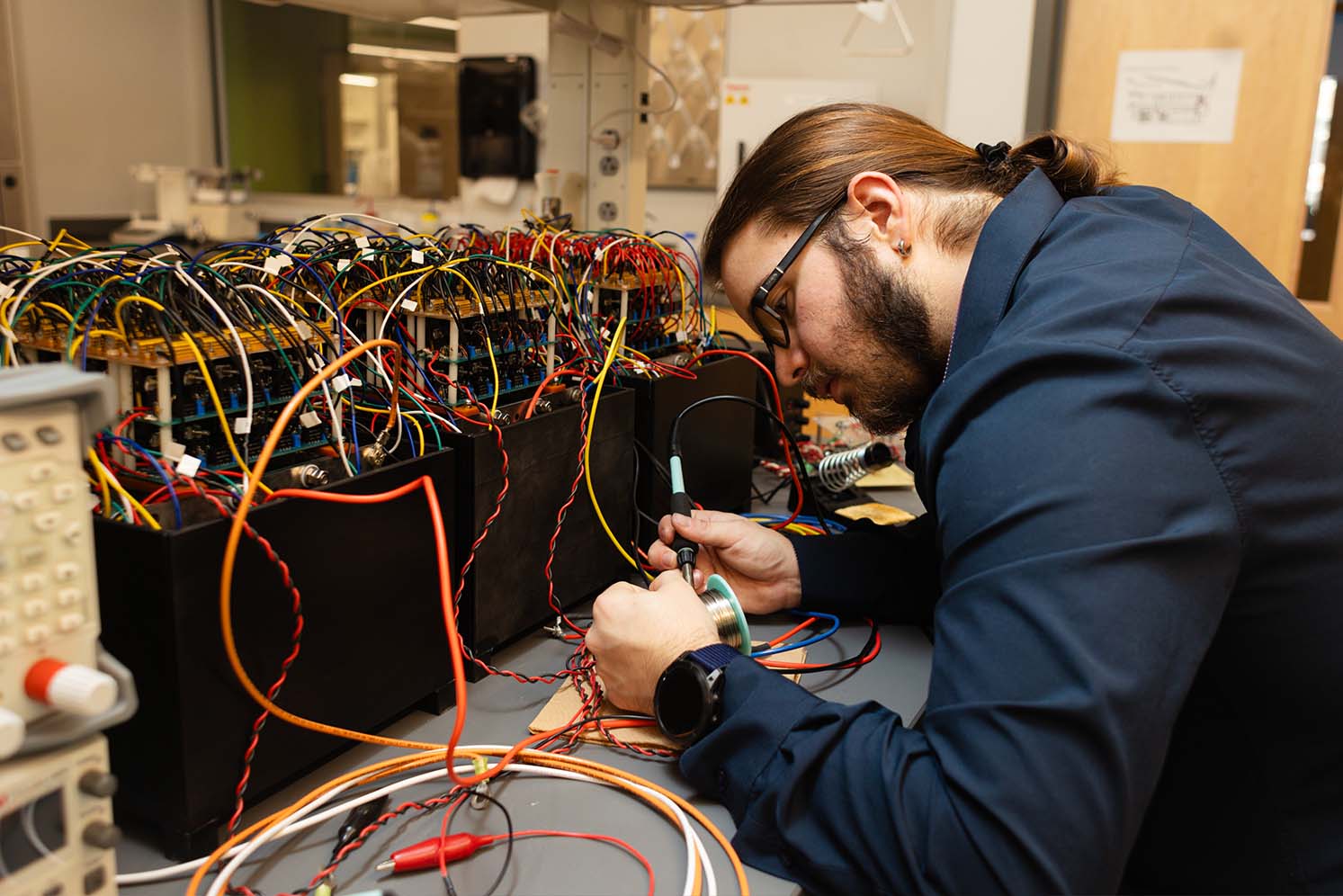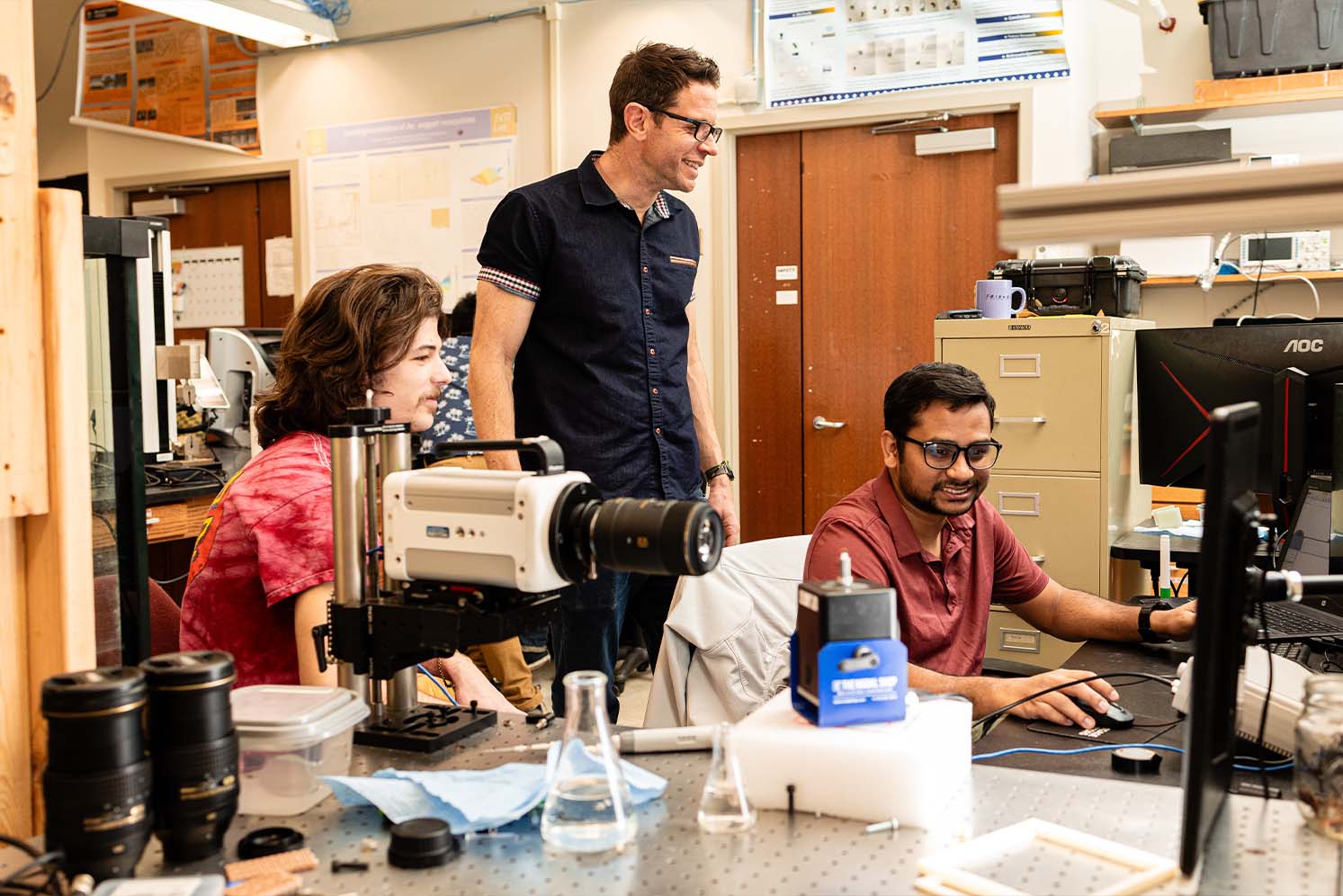
What is
Mechanical Engineering
Mechanical engineering is a versatile field that involves the design, analysis, manufacturing, and maintenance of mechanical systems. It encompasses a broad range of industries, including automotive, aerospace, energy, robotics, and manufacturing. Mechanical engineers apply principles of physics and mathematics to develop innovative solutions that improve efficiency, safety, and functionality in various systems
What Study
Mechanical Engineering
Mechanical engineering at UT combines hands-on experience with innovative research to prepare students for a broad range of careers. With access to cutting-edge labs, collaborative research with Oak Ridge National Laboratory, and real-world co-op and internship programs, students gain the technical skills and professional experience needed to lead in industries like energy, robotics, and manufacturing. Opportunities for study abroad and engagement with a strong alumni network further enrich the academic journey.

Interdisciplinary Examples
Mechanical engineering work across disciplines on projects like biomechanics to improve people’s access to the world, advancing clean energy solutions, and much more. Check out just a few of the ways that mechanical engineers work to benefit society.
Biomechanics and Assistive Technology
Mechanical engineers collaborate with health professionals to develop prosthetics, orthotics, and rehabilitation devices that mimic or support human motion. By applying principles of dynamics and materials science, engineers improve the quality of life for individuals with physical impairments or injuries.

Clean Energy and Sustainable Design
From wind turbines to solar tracking systems, mechanical engineers are vital to advancing renewable energy technologies. Their understanding of thermodynamics and fluid dynamics helps optimize energy conversion systems and reduce carbon emissions, contributing to a more sustainable planet.

Advanced Manufacturing and Robotics
Mechanical engineering intersects with computer science and electrical engineering to develop autonomous systems, robotic arms, and precision manufacturing techniques. These innovations are transforming industries from automotive production to medical device fabrication, improving efficiency, accuracy, and customization.

Climate Control and Environmental Systems
Mechanical engineers design HVAC (heating, ventilation, and air conditioning) systems and sustainable building solutions that enhance comfort and energy efficiency. Their work is critical in designing systems that balance human needs with environmental conservation, especially in urban and industrial spaces.



Career
Outlook
Mechanical engineering is one of the broadest and most in-demand engineering disciplines, offering a wide array of career paths in industries such as automotive, aerospace, energy, robotics, manufacturing, and healthcare. According to the U.S. Bureau of Labor Statistics, employment is projected to grow 10% between 2023 and 2033—faster than the average for all occupations.
- Starting Median Salary: $78,000*
- Mid-career Median Salary: $103,000**
- Number of Jobs: 323,900***

*These figures include the median salary of engineers with 0-5 years of experience. The data comes from payscale.com, July 2025.
**These figures include the median salary of engineers with 10+ years of experience. The data comes from payscale.com, July 2025.
***These figures are based on the projected number of jobs for mechanical engineers in 2033 by the U.S. Bureau of Labor Statistics.
